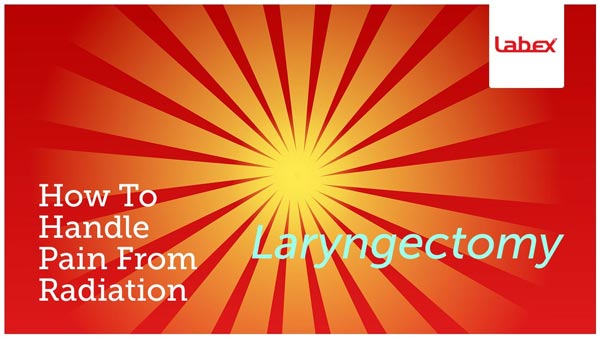How To Handle Pain From Radiation – Life After Radiation Treatment
What to expect and how to handle pain from radiation? How to look after yourself when your radiation treatment is complete?
Once your course of radiation treatment is finished, continuing to take great care of yourself is important. No matter what kind of cancer you’ve had, you will need regular checkups and possibly laboratory tests and X-rays to determine how successful the treatment was and if you require additional therapy.
How hard is To Handle Pain From Radiation?
Just how dangerous is radiation?
Radiation dosage can be measured in numerous ways. A few of the units used are Grays, Sieverts, rapid eye movements, and rads. They are used in a similar method, however 1 rad is equivalent to 0.01 Gray.
Below 30 rads: Mild signs will take place in the blood
From 30 to 200 rads: The person might become ill.
From 200 to 1,000 rads: The individual might end up being seriously ill.
Over 1,000 rads: This will be fatal.
Radiation illness, or severe radiation syndrome (ARS) is diagnosed when:
A person gets over 70 rads from a source outside their body
The dosage affects the entire body, or the majority of it, and has the ability to penetrate to the internal organs.
The dose is gotten in a short time, usually within minutes.
A person who experiences an atomic explosion will get 2 dosages of radiation, one throughout the surge, and another from fallout, when radioactive particles float down after the surge.
Important concerns worth asking
Here are some of the questions that you might want to ask your medical professional after you have completed your radiation treatment:
- How typically do I need to return for check-ups?
- Why do I require more X-rays, scans or blood tests?
- What would check outcomes inform us?
- Will I need chemotherapy, surgery or other treatments?
- How will physicians understand if I’m cured of cancer?
- What are the possibilities that it will return?
- How quickly can I go work and participate in sports or sexual activity?
- Do I need to take any unique preventative measures?
- Do I need an unique diet plan?
- Should I work out?
- Can I use a prosthesis?
- How quickly can I have cosmetic surgery?
Radiation Therapy Side Effects
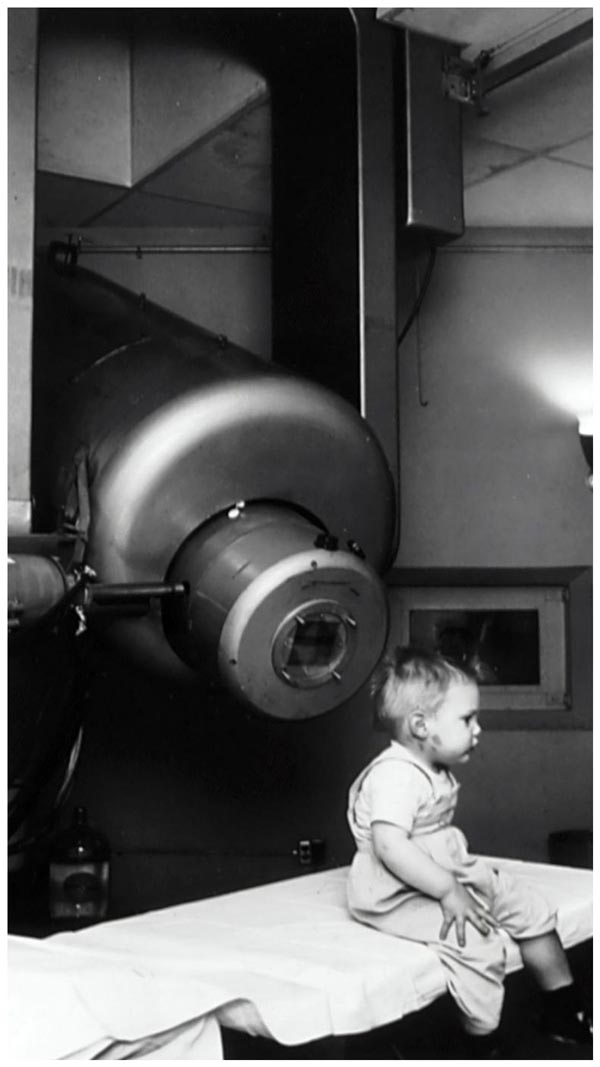
It’s really crucial to bear in mind that everyone responds differently to treatment.
Any side effect you may have depends upon the type and location of cancer, the dose of radiation being provided, and your general health.
Some people have few or no side effects, while others have numerous.
Time negative effects last?
Bear in mind that the type of radiation side effects you may have depends upon the prescribed dose and schedule.
Many side effects go away within a few months of ending treatment.
Some adverse effects may continue after treatment ends because it takes some time for the healthy cells to recover from radiation.
Negative effects may limit your ability to do some things.
What you can do will depend upon how you feel.
Some patients are able to go to take pleasure in or work recreation while they get radiation therapy Others discover they require more rest than usual and can’t do as much.
If you have negative effects that are irritating and impacting your day-to-day activities or health, the doctor may stop your treatments for a while, alter the schedule, or alter the kind of treatment you’re getting.
Tell your cancer care team about any side impacts you observe so they can assist you with them.
Early and late impacts of radiation therapy
Early side results take place during or soon after treatment. Other early side impacts generally are associated with the location being dealt with, such as hair loss and mouth issues when radiation treatment is given to this location.
Late negative effects can take months and even years to develop. They can occur in any regular tissue in the body that has actually received radiation. The danger of late adverse effects depends on the area dealt with in addition to the radiation dose that was used. Mindful treatment preparation can assist avoid serious long-term side effects.
It’s always best to talk with your radiation oncologist about the danger of long-term side effects.
Typical basic negative effects of radiation treatment.

Tiredness
Tiredness is feeling exhausted physically, psychologically, and mentally. It’s extremely typical for people with cancer and typically occurs with radiation treatment. Most people begin to feel tired after a few weeks of radiation therapy.
Because radiation treatments destroy some healthy cells as well as the cancer cells, this occurs. Tiredness generally worsens as treatment goes on.
Tension from being sick and daily journeys for treatment can make tiredness even worse. Handling tiredness is a vital part of care.
Fatigue felt throughout radiation treatment is different from the fatigue of everyday life, and it might not get better with rest.
It can last a very long time and can obstruct your usual activities.
However it will usually go away in time after treatment ends.
The finest procedure of tiredness comes from your own report to your cancer care group.
Or you can utilize a scale of 0 to 10, where a 0 indicates no fatigue, and a 10 is the worst tiredness you might picture.
Either way you choose, it is essential to describe your fatigue to your cancer care group.
Make sure to talk with them if:
- Your tiredness doesn’t improve, keeps returning, or gets worse.
- You’re more worn out than typical during or after an activity.
- You’re feeling worn out, and it’s not related to something you’ve done.
- You end up being baffled or can’t focus your ideas.
- You can’t rise for more than 24 hr.
- Your tiredness disrupts your social life or everyday regimen.
- Talk to your employer if you need to take time off from work.
How to Handle Fatigue from Radiation?
The tiredness you feel from cancer and radiation treatment is different from other times you may have felt tired.
It’s a fatigue that does not get better with rest and can keep you from doing the things you normally do, like going to work or spending time with family and friends.
It likewise can seem different from day to day, that makes it tough to prepare around it.
It can even change how well you have the ability to follow your cancer treatment strategy.
Skin problems
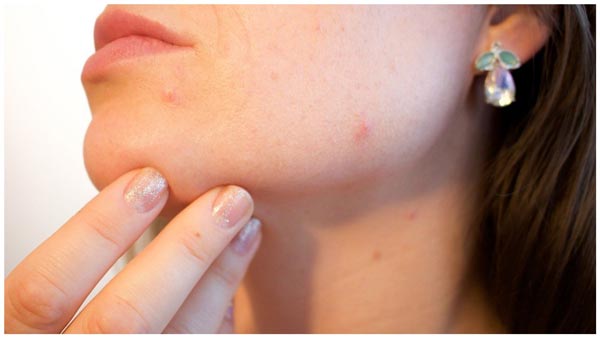
Your skin in the radiation treatment area might look red, inflamed, inflamed, blistered, sunburned, or tanned. This is sometimes called radiation dermatitis.
These problems generally go away gradually after treatment ends. Sometimes, however, the cured skin will remain darker and might be more sensitive than it was previously.
You need to be gentle with your skin.
Here are some methods to do this:
- Do not use tight, rough-textured, or stiff clothes over the treatment location. This includes anything tight or elastic that squeezes the area.
- Do not rub, scrub, scratch, or utilize adhesive tape to deal with skin. If your skin needs to be covered or bandaged, use paper tape or other tape for sensitive skin. Attempt to put the tape outside the treatment location, and don’t put the tape in the exact same location each time.
- Do not put heat or cold (such as a heating pad, heat lamp, or ice pack) on the treatment area without talking to your cancer care team. Even hot water may hurt your skin, so use only lukewarm water for washing the cured area.
- Secure the cured location from the sun. Your skin might be additional conscious sunshine. If possible, cover the treated skin with uv-protective or dark-colored clothes before going outside. Ask your cancer care team if you should use sun block. If so, utilize a broad spectrum sunscreen with a sun defense factor (SPF) of at least 30. Reapply the sun block frequently. Continue to offer your skin additional defense from sunshine, even after radiation treatment ends.
- Use only lukewarm water and moderate soap. Be careful not to rub away the ink marks needed for your radiation treatment until it’s done.
- Consult your cancer care group prior to shaving the treated location. They may recommend that you use an electric shaver.
- Ask your cancer care group prior to utilizing anything on the skin in the treatment area. This includes powders, creams, fragrances, deodorants, body oils, ointments, lotions, hair-removal products, or natural home remedy while you’re being dealt with and for several weeks later. Lots of skin products can leave a coating on the skin that can trigger irritation, and some might even affect the dosage of radiation that enters the body.
Hair loss
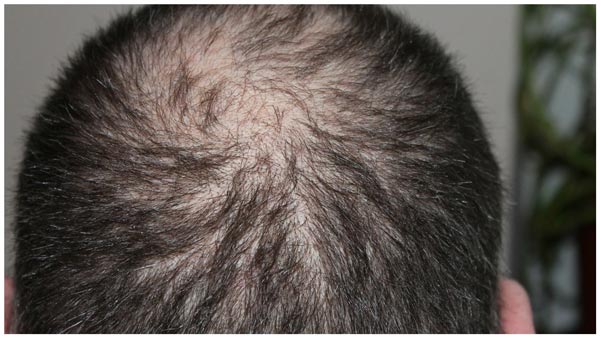
Radiation therapy can cause hair to be thinned or lost in the location being treated. Radiation to your head might trigger you to lose some or all the hair on your head (even eyebrows and lashes), however if you get treatment to your hip, you won’t lose the hair on your head.
Many people find that their hair grows back after treatment ends, however it can be difficult to handle loss of hair. When it does grow back, your hair might be thinner or a various texture than it was in the past. If you have any concerns or concerns about hair loss, ask your cancer care team.
If you do lose your hair, your scalp may be tender and you may desire to cover your head. Your local American Cancer Society workplace might be able to assist you get hats or wigs.
Low blood counts
Rarely, radiation treatment can trigger modifications in your blood count levels. If your blood tests reveal low blood counts, your treatment may be stopped for a week or so to allow your blood counts to return to typical.
Because of radiation’s impact on blood cells made in the bone marrow, low blood cell counts take place.
Low blood cell counts are more typical if you get chemotherapy at the same time as radiation treatment or if the treatment area consists of the pelvic bones (where numerous blood cells are made). Low blood cell counts are usually not extremely sufficient to trigger issues. When there is a break from treatment for a couple of days, blood cell counts usually recuperate.
Anorexia nervosa can start within the first couple of weeks of radiation therapy and can continue after treatment has actually ended.
Side effects like sore mouth, dry mouth, issues swallowing and queasiness and vomiting can trigger loss of appetite.
Radiation therapy to the head and neck area can trigger momentary changes in taste or smell, which can make foods appear less tasty. Some people dislike food entirely and do not eat, even though they understand they require to.
Keeping good nutrition throughout and after radiation therapy is necessary to help a person recover from treatment.
Queasiness and throwing up can be a common adverse effects of external radiation therapy, particularly if the treatment location includes the stomach and abdomen.
It can likewise occur as a basic side effect no matter the location being treated. Radiation sickness usually disappears a couple of weeks after radiation treatment is ended.
How To Handle pains From Radiation
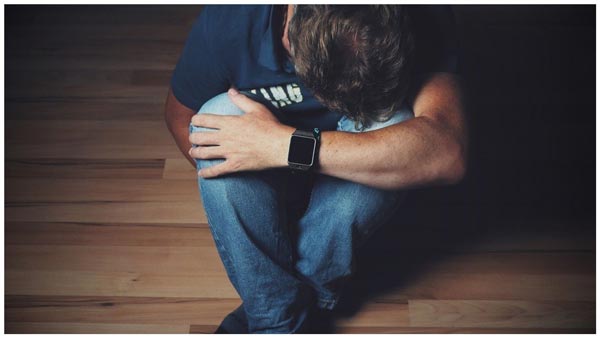
How To Handle Pain From Radiation?
Some patients need aid managing pain that can often result at the treatment site after radiation therapy.
You must not use a heating pad or warm compress to eliminate discomfort in any area treated with radiation.
Mild discomfort medicine may be enough for some individuals.
Ask the doctor about prescription drugs or other techniques of relief if you have severe pain.
Be as particular as possible when informing the medical professional about your discomfort, so you can get the very best treatment for it. If you are not able to get remedy for pain, you might wish to talk with a doctor who is a discomfort professional.
Due to the fact that discomfort can be even worse when you are concerned or scared, it might assist to try relaxation workouts. Other methods such as hypnosis, biofeedback and acupuncture may be helpful too.
After treatment for cancer, you’re likely to be more aware of how your body feels. If you notice any uncommon signs, be sure to discuss them with your physician.
These consist of:
- Pain that doesn’t disappear, specifically if it’s constantly in the exact same place
- Lumps, bumps, or swelling
- Nausea, throwing up, diarrhea or loss of appetite
- Unexplained weight reduction
- A fever or cough that doesn’t go away
- Uncommon rashes, swellings or bleeding
If you’re getting radiation treatment to the head or neck
People who get radiation to the head and neck might have side effects such as:
- Discomfort (or perhaps open sores) in the mouth or throat
- Dry mouth
- Difficulty swallowing
- Modifications in taste
- Nausea
- Earaches
- Tooth decay
- Swelling in the gums, throat, or neck
- Hair loss
- Changes in skin texture
- Jaw stiffness
How to take care of your mouth during treatment
If you get radiation therapy to the head or neck, you are required to take good care of your teeth, gums, mouth, and throat.
Here are some suggestions that may help you manage mouth issues:
- Avoid spicy and rough foods, such as raw veggies, dry crackers, and nuts.
- Don’t eat or drink extremely hot or very cold foods or beverages.
- Do not smoke, chew tobacco, or drink alcohol– these can make mouth sores worse.
- Stay away from sugary treats.
- Ask your cancer care team to suggest a great mouthwash. The alcohol in some mouthwashes can dry and irritate mouth tissues.
- Rinse your mouth with warm salt water and soda every 1 to 2 hours as required. (Usage 1 teaspoon of salt and 1 teaspoon of baking soda in 1 quart of water.).
- Sip cool drinks often throughout the day.
- Eat sugar-free sweet or chew gum to help keep your mouth moist.
- Moisten food with sauces and gravies to make it simpler to consume.
- Ask your cancer care group about medications to help deal with mouth sores and control discomfort while consuming.
If these measures are insufficient, ask your cancer care team for suggestions.
Mouth dryness might be an issue even after treatment is over. Talk to your team about what you can do if so.
How to look after your teeth throughout treatment.
Radiation treatment to your head and neck can increase your opportunities of getting cavities. This is especially real if you have dry mouth as a result of treatment.
Ask your dental expert to talk with your radiation physician prior to you begin treatment. Radiation (and dry mouth) may damage them to the point where they’ll need to be eliminated anyhow, and this can be harder to do after treatment starts.
They might no longer fit well due to the fact that of inflamed gums if you wear dentures. You might need to stop using them up until your radiation therapy is done to keep sores from getting infected if your dentures trigger sores.
Your dentist might wish to see you during your radiation treatment to check your teeth, speak to you about looking after your mouth and teeth, and assist you deal with any problems.
Most likely, you will be informed to:
- Clean your teeth and gums with an extremely soft brush after meals and at least another time each day.
- Use fluoride toothpaste that contains no abrasives.
- Rinse your mouth well with cool water or a sodium bicarbonate solution after you brush. (Usage 1 teaspoon of baking soda in 1 quart of water.).
- Ask your dental expert or cancer care group if this is OK throughout treatment if you usually floss. Inform your cancer care team if this triggers bleeding or other problems.

Going back to work after treatment.
While many people continue to work during radiation therapy, others make the decision to quit working for a while.
You can return to your task as soon as you feel up to it, even while your radiation therapy is continuing. If your task requires lifting or heavy physical activity, you might require to change your activities up until you have regained your strength.
It is essential to discover your rights concerning your task and health insurance coverage when you are all set to return to work.
Commit to physical activity.
For patients that are up for it and are currently physically active, exercising throughout radiation treatment can assist with tiredness, mood issues and stress management.
We generally do not recommend starting a brand-new extensive training program during radiation.
You can also examine this excellent short article concerning foods that protect from radiation.
See some of our Stoma Care Products and Labex Electrolarynx Devices!
Please consider joining our Labex Support Center for Laryngectomee FB group:.

